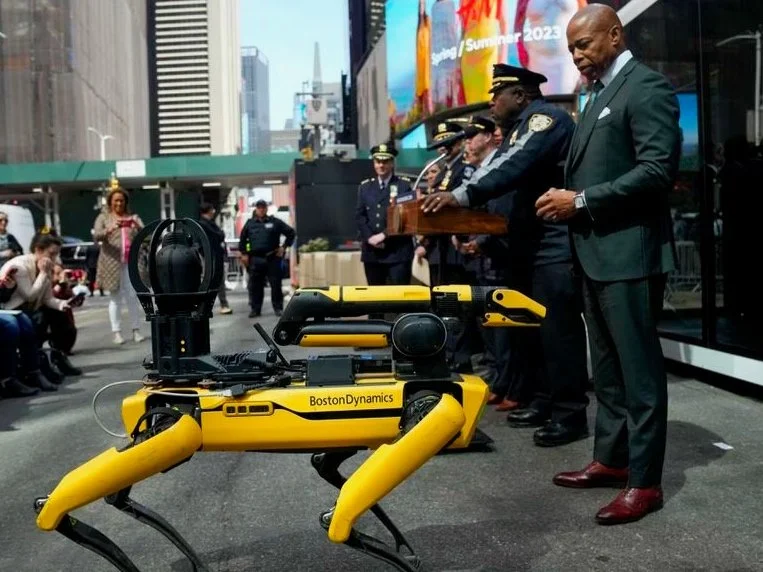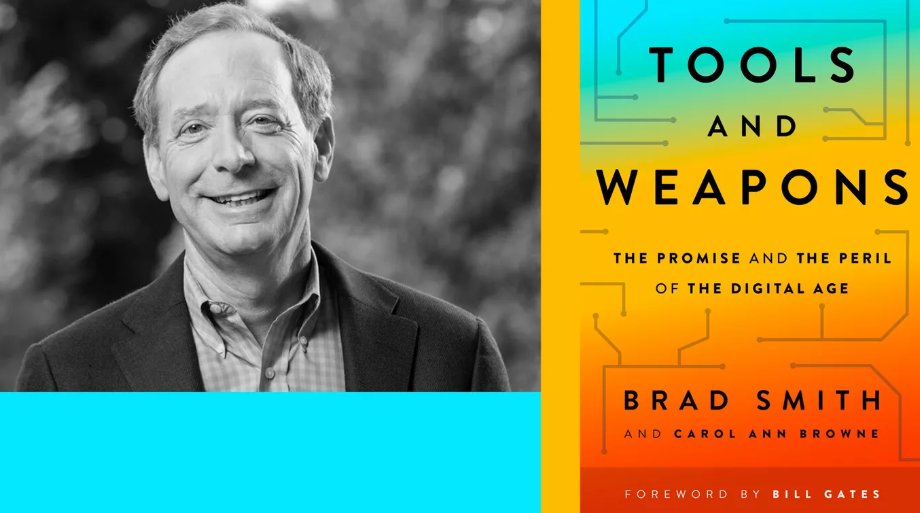In the third blog in our series exploring the use of biometrics, we take a look at Rapid DNA, a technology that dramatically reduces the amount of time needed to process forensic DNA evidence, but with few safeguards, standards, or regulations.
Highlights from our convening on facial recognition
To conclude our Fall 2019 salon series, the Policing Project and the Information Law Institute hosted a discussion of the regulation of facial recognition. As more jurisdictions are using the tech to aid law enforcement, there are sharp societal disagreements on where to draw the lines between acceptable and unacceptable uses.
Policing Project, Camden police meet with community leaders to discuss new use of force policy
Policing Project Fall Salon Series Explores How to Effectively Regulate Police Use of Technology
This fall, the Policing Project kicked off our Tech Salon Series with two events. Our salons, made possible by support from Microsoft, enable us to vet our projects and discuss pressing issues around law enforcement’s use of technologies with a diverse set of experts, including privacy advocates, technology vendors, police chiefs, academics, legal experts, community leaders, and government officials.
The Importance of Trans-sensitive Police Policies and Practices
According to the U.S. Transgender Survey, among transgender people who interacted with police in the past year and said officers were aware they were transgender, 58% reported some form of mistreatment. Our latest blog explores how some police departments and trans-rights groups are developing better policies to address this issue.
A Philosophy, Not a Program: Chicago and New York Police Meet to Discuss Neighborhood Policing
The Policing Project recently hosted members of the Chicago Police Department during their visit to New York to learn more about NYPD’s Neighborhood Policing, the neighborhood-focused collaborative policing philosophy on which the Policing Project’s Chicago Neighborhood Policing Initiative is modeled.
Policing Project’s Supreme Court amicus brief calls for protecting basic Fourth Amendment principles
The Policing Project submitted an amicus brief in support of certiorari asking the United States Supreme Court to overturn a decision of the Nebraska Supreme Court that permitted a police stop of a vehicle, in the absence of reasonable suspicion, on the grounds that the stop was merely information-seeking.
As Axon eyes entry into ALPR market, Ethics Board calls for industry-wide regulation
Policing Project Fellow Julian Clark talks transparency and accountability at American Constitution Society, NYLS panel
The growing world of face recognition legislation: Our new guide to local and national regulations
Face recognition technology is increasingly being used by government agencies, particularly law enforcement, but while regulation of the technology is increasing, the rollout has been far from uniform. The Policing Project, with help from the Information Law Institute, conducted a review of enacted and proposed regulation across the U.S. and Canada, culminating in our new resource that analyzes trends in legislation and provides a table of nearly 200 proposed and enacted laws.
It’s time to start collecting stop data: A case for comprehensive statewide legislation
Police officers in the U.S. pull over at least 50,000 drivers every day, making the traffic stop the most common interaction between the public and police. But despite the frequency, there is a lot we don't know about stops and their effects, in part because stop data collection laws are not mandated in most states, and even when they do exist, the laws are far from perfect.
Policing Project Five-Minute Primers: Iris Recognition
In the second blog in our new series exploring the use of biometrics, we take a look at iris recognition, a technology being deployed nationwide – from the Southern border to Massachusetts –but one that has yet to see the news coverage and public discussion that have surrounded other high-profile biometric technologies.
Microsoft President Brad Smith visits Policing Project to talk the future of tech and democratic accountability
How should private companies, governments, and the public address concerns posed by new technologies, such as the loss of privacy, perpetuation of racial injustice, or the prospect of widespread government surveillance? Microsoft President Brad Smith recently visited NYU Law for a discussion of these issues and the new book “Tools and Weapons: The Promise and the Peril of the Digital Age.”
Policing Project welcomes new fellows for 2019-2020 academic year
Join us for a conversation with Microsoft President Brad Smith, Sept. 13 at NYU
Technology has drastically shaped our society and our lives, with equal potential for both incredible good and devastating harm. Join us for a conversation with Brad Smith, President of Microsoft, to discuss his newly released book, Tools and Weapons: The Promise and the Peril of the Digital Age, in the context of policing technology, with special emphasis on the ethics of AI, privacy legislation and the need for regulation on facial recognition.
Policing Project drafts innovative new use of force policy for Camden
Facial Recognition: Q&A between a policy advocate and an AI practitioner
Policing Project Five-Minute Primers: Face Recognition
The Policing Project’s new blog series explores one of the more complex—and rapidly changing—areas of policing: the use of biometric technologies. For our first blog in this series, we explore face recognition, covering some common questions like, “How are police using this technology?” and “How does the technology work?”

























